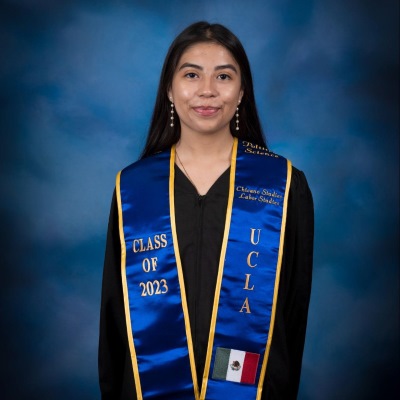Spring 2025 Dreams Without Borders Scholarship Winner
Jennifer Garcia
Jennifer believes information inaccessibility is an area of immigration law that needs significant improvement. To combat this, she has created a proposal that would help address the lack of resources and exclusivity of legal assistance. We are honored to name Jennifer as the first-ever winner of the Dreams Without Borders Scholarship!

Read her essay here:
I believe one of the most difficult barriers to overcome is knowledge inaccessibility.
I was the first-born American of my family, the oldest daughter of a single-parent home, and the first English-speaker. My family immigrated from Mexico in the 90s and, to date, the only members with status are my grandfather (who received status about a decade ago due to his life-threatening illness), my grandmother (who received resident status as his wife), and my aunt (their youngest daughter). The moment I turned 21, I petitioned for my mother's status - we are still waiting and saving up for the fees. I grew up in Los Angeles, moving from house to hotel to apartment to bedrooms in other people's homes. As a result of this, and many other factors, I was the designated researcher, translator and advocate for my family members. I was faced with the struggles of navigating the system of law and immigration just as a kid growing up figuring out what terms mean, but also as someone who, though had status, didn't feel American. I did not feel welcome in this country growing up. As I grew older and attended UCLA, I knew this was due to the deliberate alienation of the justice, legal and education system from non-white Americans. Not only are the laws inaccessible and confusing to the most professional and educated, they are deliberately made with the intention of making citizenship and Americanism exclusive.
Recently, I completed a summer clerkship with LAFLA. As a member of the Family Justice and Survivor Workgroup, I regularly spoke with clients who sought a domestic violence restraining order. I wrote their petitions, listened to their stories, and assisted with counsel and advice with my supervisors. I also occasionally helped with child custody orders and divorces. This was similar to my experience in JusticeCorps. However, at the end of my clerkship with LAFLA, I created a proposed plan and project for reaching more members of my community and sharing knowledge more efficiently. In my proposal, I noted the lack of both auditory and visual resources for both outreach and actual knowledge sharing. More importantly however, I emphasized going to actual community centers (conventional or not, like a church or gym in housing projects), speaking to community leaders, and hosting educational workshops about different areas of law. What distinguishes this from a traditional workshop or office hours is the fact that questions, no matter how specific, are addressed and knowledge is openly shared. The structure would be extremely receptive to the needs of the community. Community members and the lawyers from LAFLA hosting the workshops would be equals.
I believe this very broad area of immigration law, general knowledge transference, would benefit from this kind of outreach and mindset. Even if it comes from the inside-in via community members and immigrants already in America themselves, this would help diminish the sense of exclusivity Americanism has. Those coming in, or hoping to come in, may access legalities and sense of belonging, easier.





